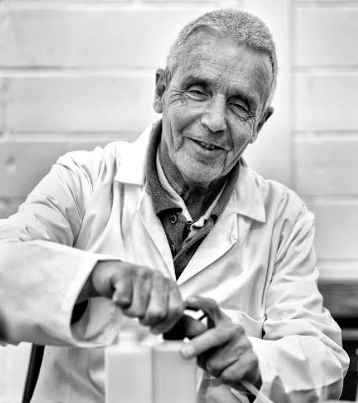Bathroom breaks at the Southwark headquarters of PwC have taken on a greater social significance since the company switched out the liquid soap in the washrooms last year.
Employees might have noticed little more than a slight change in fragrance – though the poppy and wild fig scent is subtle – but to the workers of a small, sweet smelling factory in London’s north east, the difference was monumental.
The Soap Co is an ethical luxury soap brand manufactured by Clarity, the UK’s oldest social enterprise. For more than 150 years, Clarity has created employment opportunities and provided training to help people with visual impairments and other disabilities build skills, confidence and independence. Today, around 80% of their staff are blind or otherwise disabled or disadvantaged.
PwC is one of a number of City firms diverting an increasing part of their procurement spend towards buying social. Tech services firm Accenture has begun using Clarity’s Apple and Almond hand wash in the bathrooms at its Fenchurch Street headquarters, while law firm Bates Wells Braithwaite has the eco-friendly washing up liquid in its kitchens on Upper Thames Street.
This follows last year’s commitment from seven major UK companies to spend £1billion with social enterprises by 2020 as part of the government’s Buy Social Corporate Challenge, to which PwC was a founding signatory. Clarity chief executive officer Jeremy Robinson says companies like PwC and Santander are leading the way when it comes to changing perceptions around the value of Corporate Social Responsibility (CSR) and the importance of buying social.
“I think to an extent companies focused on gaining the best price they could for products or services and saw value mostly in those terms. Meanwhile, CSR initiatives focused on direct impact, typically through funding or volunteering,” he says. “But now firms are thinking about widening their definition of ‘value’ and indirect impact through a supply chain, ‘mainstreaming’ and embedding it into a company’s approach, which we consider to be a transformative approach.”
Large scale orders – like those for PwC’s 29 offices around the UK – are what keep Clarity’s 100-odd part-time factory staff in stable employment. Some workers will spend a couple of months at the factory retraining and building their confidence before moving on to permanent roles elsewhere with the help of Clarity’s social workers, while others will stick around for years.

Roles are rotated and adjusted to fit various disabilities, though visually impaired staff make up around 40%. Hayley Louise, the factory’s production manager and self-described mother hen, says the Soap Co’s production processes are all about striking a balance between creating employment and maintaining efficiency.
“We have always had labour in abundance, and I think the main thing is not look at what people can’t do, but to look at what they can do,” she says. That could be anything from hand-cutting bars of soap on the conveyor belt to measuring and mixing the ingredients for a hand lotion.
Teams are also working on ways to make Clarity’s products ‘greener’ with environmentally-friendly packaging and ingredients that are sustainably sourced, which Jeremy points out is often an equally important feather in a firm’s CSR cap.
“City firms are made of people, clients and communities – firms are increasingly conscious that buying from a social enterprise like Clarity can align and engage all of these groups,” he says. “Every office needs hand wash – why not transform lives at the same time, whilst benefiting your business?”







